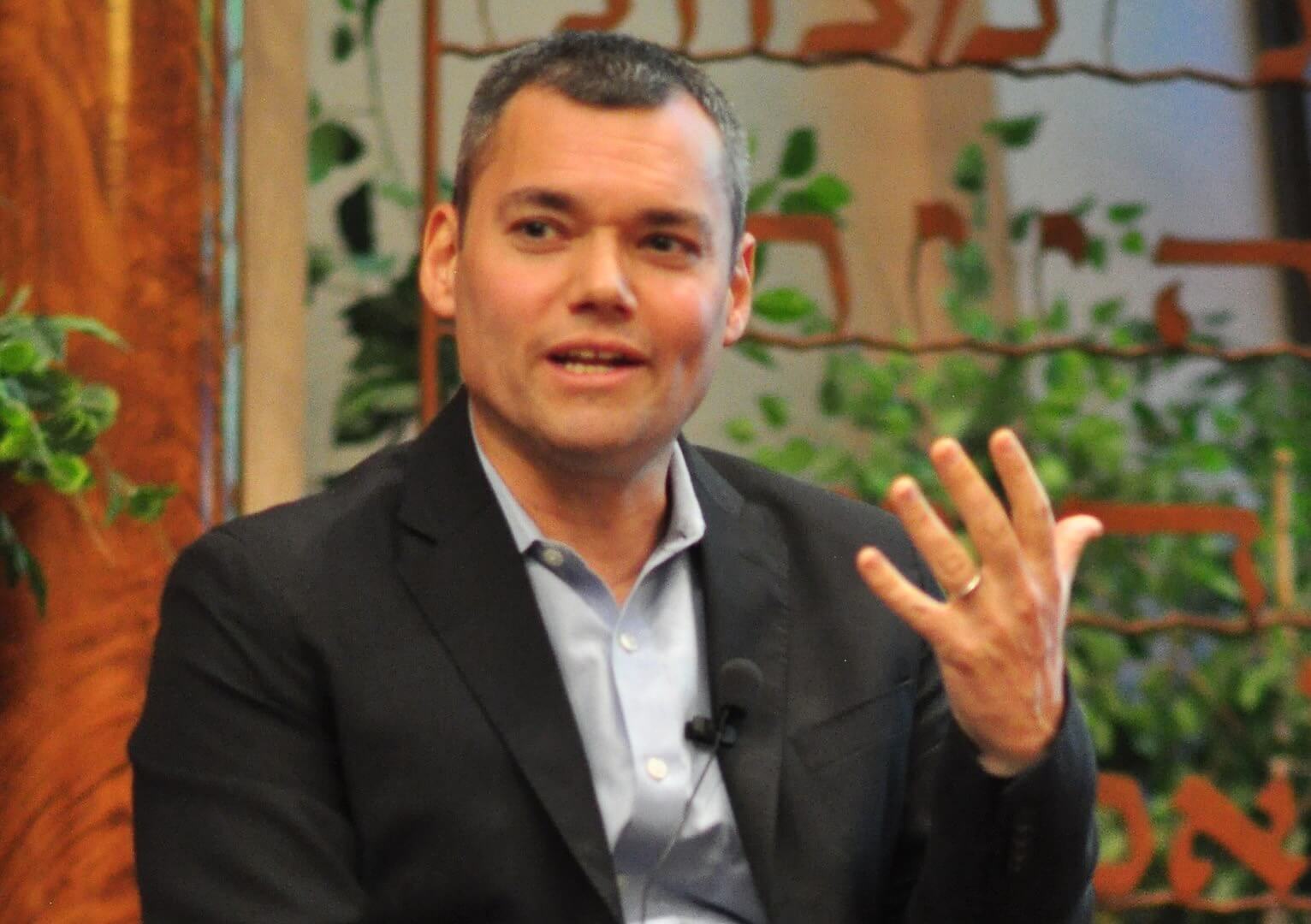Admit it, American Jewish establishment: Peter Beinart was right
A fierce Israel critic’s predictions ring true

Graphic by Angelie Zaslavsky
I was Zooming with the leader of a large, mainstream Jewish charitable foundation when she said something to me that I didn’t see coming.
“Peter Beinart was so right.”
I could only stammer a response.
Thirteen years ago, Beinart, a columnist and professor of journalism and political science at the City University of New York, published “The Failure of the American Jewish Establishment” in The New York Review of Books, accusing mainstream American Jewish leaders and organizations of turning a blind eye to Israel’s occupation of the West Bank and abetting its descent into an undemocratic, illiberal state.
The essay, followed by a subsequent book, The Crisis of Zionism, and columns that questioned the very idea of a Jewish state, moved the once-centrist wunderkind to the fringes of the organized Jewish community. Israel’s then-ambassador to the United States, Michael Oren, led a chorus of critics, calling the essay “marginal and highly radical.”
Now, there’s a different chorus: hundreds of thousands of Israelis taking to the street to stop proposed judicial reforms they see as dangerously anti-democratic. And, as even Israel’s staunchest American supporters have begun speaking up to save Israel’s democracy, I wondered if Beinart is feeling vindicated.
So I asked him.
“No, no, I wouldn’t say that’s my dominant emotion,” he said at the start of our phone interview. “I’m feeling more fear about what’s likely to happen.”
They were fears that Beinart, a former Forward columnist who is now editor-at-large at Jewish Currents, began feeling, and expressing, over a decade ago.
Until his “J’accuse” essay appeared, the Orthodox father of three had colored largely within the lines of the American Jewish mainstream, supporting the Iraq War — a major regret — and urging a robust response to Islamic extremism. Then he stepped out.
“Morally, American Zionism is in a downward spiral,” he wrote. “If Israel makes the occupation permanent and Zionism ceases to be a democratic project, Israel’s foes will eventually overthrow Zionism itself. We are closer to that day than many American Jews want to admit.”
Others had sounded the alarms before Beinart, as he was quick to point out. But one thing neither they nor Beinart predicted was that the greatest turmoil would not come from the occupation, but from inside the government itself.
“What I was saying, in retrospect, didn’t go far enough,” he said in our talk. “I missed a lot of other deeper realities as well, right?”
In 2010, then-Prime Minister Benyamin Netanyahu brought into his cabinet Avigdor Lieberman, who had laid out a plan to deprive some Israeli Arabs of citizenship by redrawing the Green Line and placing them in a Palestinian state, effectively calling for their forced transfer.

“Those currents were strong enough,” said Beinart. “It wasn’t hard to see that what were considered to be very far right forces had real strength.”
Netanyahu is again prime minister, of course, and in the intervening years, the currents only grew stronger due to the growth of the religious communities and the influx of immigrants from the former Soviet Union, who tended to lean right.
“The other thing that empowered the right was the fact that Israel never really paid a price for its policies of de facto annexation,” said Beinart.
I asked Beinart if he saw a connection between the occupation and the moves to subvert the judiciary’s independence.
“Yes, but there’s a confluence of forces,” he said.
The religious parties support the changes because it will protect their interests. Netanyahu sees the changes as a way to protect himself from prosecution.
But the far-right members of the coalition “want to make sure that the court doesn’t prevent them from, for instance, seizing privately owned Palestinian land. And the fact that they can get to this point where they can make this move is partly because there has been no political consequences for Israel for its massive seizures of Palestinian land already.”
As foreign investors, and even some Israeli companies, pull money out of Israel amid the present turmoil, the irony that a self-inflicted democratic crisis is creating the first successful divestment campaign against Israel isn’t lost on Beinart.
“It turns out that boycotting Israel if you’re doing so to protect the rights of Jews is OK,” he said. “It’s only treyf if you boycott Israel to protect the rights of Palestinians.”
In his own New York Times column on the protests and in an even more controversial 2020 Times piece, “I No Longer Believe In a Jewish State,” Beinart has staked out a position even farther outside the mainstream, rejecting the idea that Israel can be a liberal democracy and a Jewish state.
“The whole framework of talking about Israel as an imperiled liberal democracy is itself so willfully blind to the reality that for Palestinians, Israel is not a liberal democracy at all,” he explained to me. “So much of the American Jewish conversation just takes place in this kind of la-la land in which Palestinians don’t even exist.”
If Netanyahu has his way, Beinart said, “Israel could go from being a liberal democracy for Jews to being an illiberal democracy for Jews. For Palestinians it was basically not a liberal democracy to begin with.”
Those are opinions that keep Beinart far outside the Jewish mainstream. But judging by current headlines, it’s hard to argue that sometimes the insights people refuse to accept today can be tomorrow’s painful reality.






















